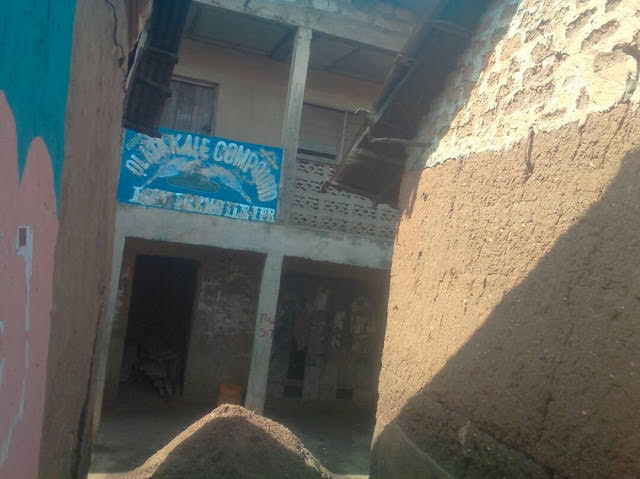By Sodiq Lawal
Fellow Brethren, I have surfaced again. I hope I could spare you this ordeal but something in me retorted. I have not been in perpetual silence for nothing. I have been brushing aside the temptation to write these days for many reasons. On top of it is the advice I received from elders and colleagues whom I respect so much that I should tarry a while. Trial it may, I overtly obliged and retired permanently to observations. At least they say, time is healing.
I have observed for a million times about the relationship between the Peoples Democratic Party (PDP) and the thugs at Iremo road in Ile-Ife, they have turned Olatakale compound as their secular home for meetings.
Over ten years, they have been using the Olatakale compound for many social miscreants. Thugs restiveness in the ancient city is dangerously accelerating. They have become the order of the day which unleash irreparable material loss, anguish, hatred, revenge, pain and moral degradation on youth, families and society at large.
Often time, critics contend that we only write to attack without proffering solution. It is not true. Contrary to what some are circulating that if you don’t speak for PDP, you are speaking for the APC. It is baseless. It doesn’t take special training to know our brothers are going nowhere. Let me tell them that everyone I know, including me, loves and wants them to succeed. The reason is simple. They are youths. They should not be used by politicians. The society is looking up to them. They represent the time to come.
The issue of the PDP meeting with the street boys continue to raise many questions.
For example, are they not the one used to distort elections?, could it be that the boys are facing cultural dilemma in the ancient city? Or, are parents and guardians miserably failing in their duty of providing the needed support to the youth? Perhaps, the society is not caring enough! In whichever direction one points the “accusing finger” I think the problem of street youths in Ile Ife deserves our attention. The future of our community is seriously threatened by this phenomenon.
My personal philosophy as an educator is based on the fact that the greatest aim of education is not knowledge, but action. Though it is good to have knowledge about or in something that knowledge fails to ‘serve’ society if it is not put into action.
Action brings results. Results bring improvement and progress for the benefit of the community. Knowledge becomes creative and open when it leads to action! Africans have an adage: “It takes the whole community to bring up a child.” Undoubtedly, children are our heritage and it is the responsibility of
us as adults to identify, talk about and take action on any factors that put our children youth “at-risk”.
The use of thugs in Nigerian politics has not only led to waste of human resources, but it has also resulted in the dearth of able- bodied men who may be useful in the future of Nigeria, and low participation of women in politics.
Without doubt, Nigerian politics has since independence, been characterized by thuggery and violence. Little wonder, politics is conceived as a dirty game and exclusive right of thugs and hooligans in Nigeria.
Consequently, Nigeria politics manifest in acrimony, assault, assassination, intimidation, harassment, maiming and killing.
This trend is not a phenomenon of recency; thuggery, brutality and violence political behaviour have been with us for the past four decades. Immediately after independence the politicians, in an attempt to capture, exercise, and retain power within their regional settings involved themselves in various acts that were politically immature, unwise and disastrous.
They adopted a style that was antithetical to democratic tenets and good governance. They recruited, trained and empowered thugs to harass, intimidate and victimize perceived political opponents and opposing views against their political ambition. This culture of thuggery has not only been imbibed and sustained as part of the country’s political behaviour since independence to the present moment, it has been one of the potent causes of the low participation of women in politics.









